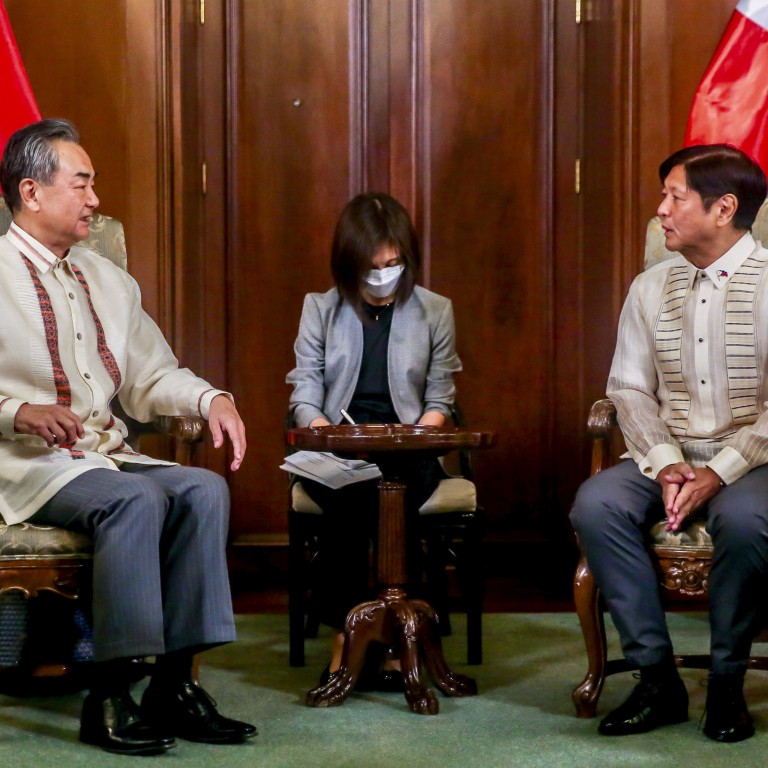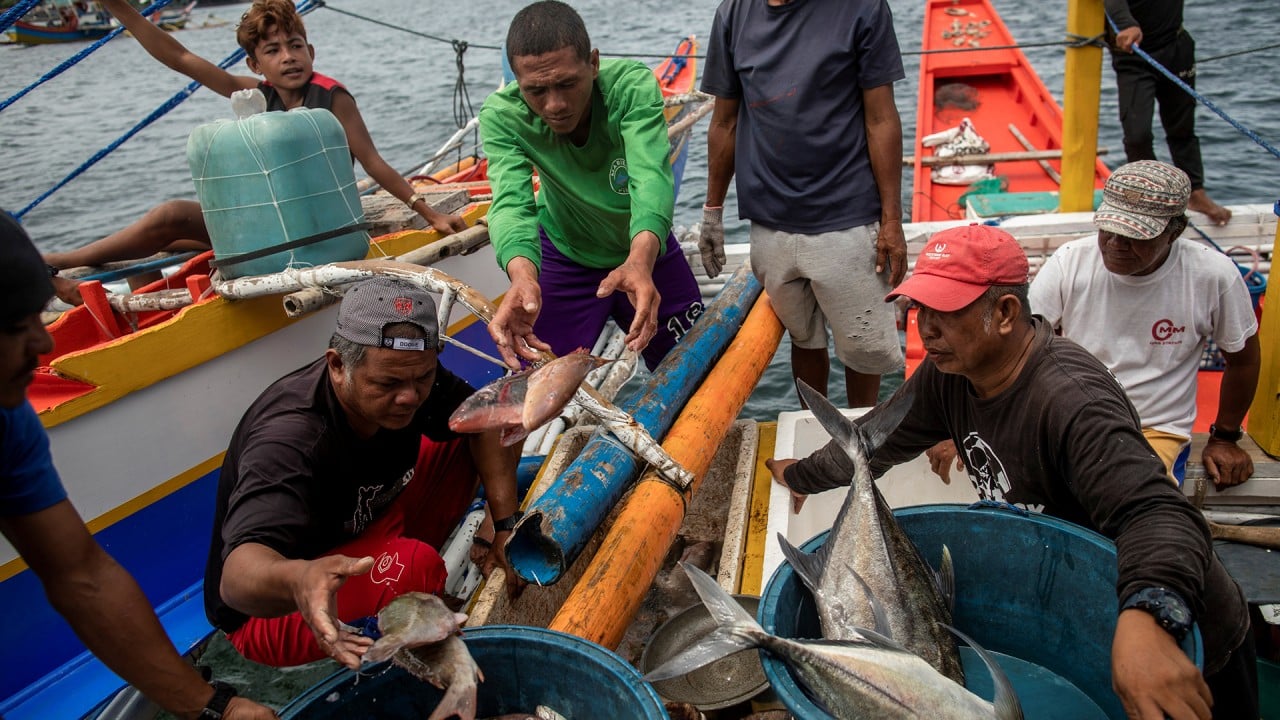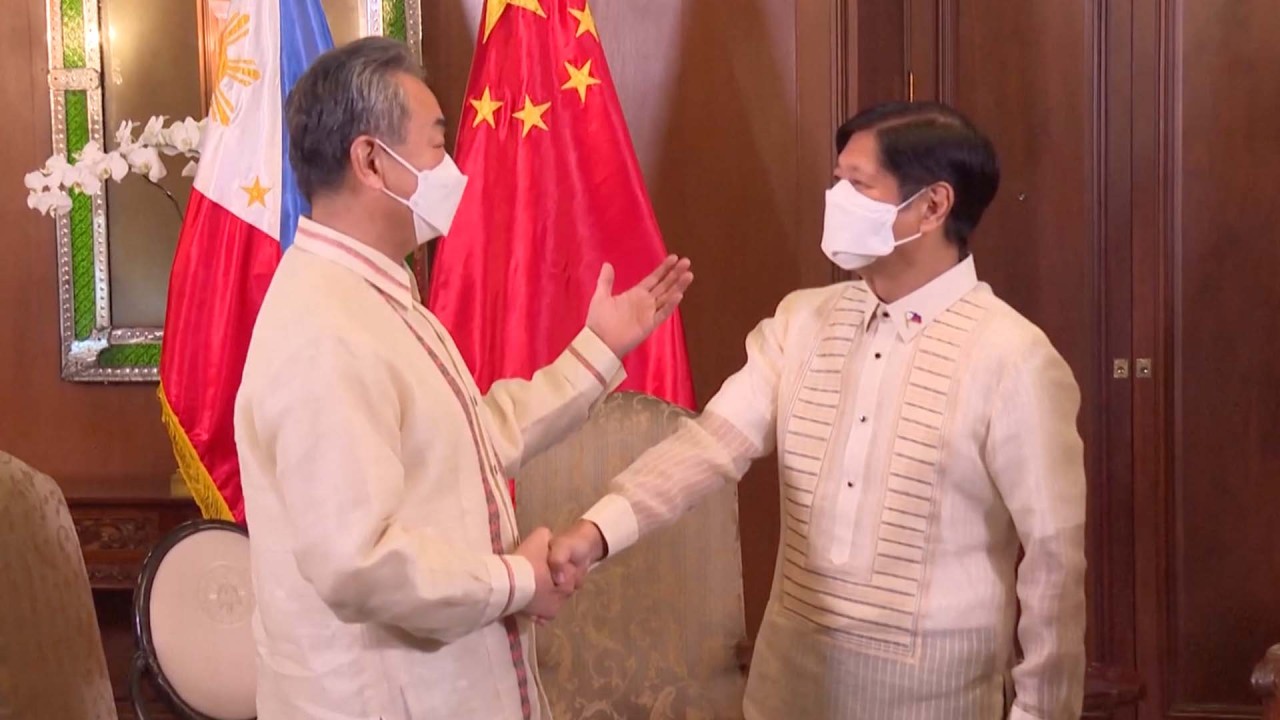
China, Philippines relaunch investment talks to reverse shortfall in Beijing’s pledged funding
- China hopes to maintain friendly relations with the Philippines, a historical US ally, by revisiting loan agreements for three major railway projects, according to analysts
- Incidents in the South China Sea over the past four years have eroded Sino-Philippine ties, but Beijing recently said that it is ready for a ‘golden era’ in bilateral relations
China has relaunched talks with the Philippines on funding billions of US dollars worth of infrastructure in the relatively impoverished Southeast Asian country, after its president called out Beijing for falling short of old pledges.
As of 2020, the net loan commitment by China had reached US$493.1 million, according to the National Economic and Development Authority in the Philippines. And China’s total approved investments from 2017 to 2021 were worth US$3.2 billion, Philippines Statistics Authority data shows.
Philippines’ Ramos sought Beijing ties but also showed South China Sea defiance
Loan agreements for three landmark Philippine railway projects are effectively “withdrawn” because the Chinese government “failed to act on the funding requests”, the government-run Philippine News Agency reported on Friday.
The two sides have been negotiating “technical issues” on infrastructure projects and made “positive progress to move projects forward”, the Chinese embassy in Manila said in a statement on July 17.
Philippine President Ferdinand “Bongbong” Marcos Jnr had indicated a day earlier that he wanted stronger investment ties with China and told his transport department to secure loans for the railway projects.
China hopes to maintain the friendship initiated by Duterte by pressing ahead with investments, analysts said.
The Philippines is a treaty ally of the United States, a strategic and economic rival of China, and looks to Washington for military aid in defending its maritime claims against the Chinese coastguard and fishing fleets. Incidents in the sea over the past four years have eroded Sino-Philippine relations.
“The fact that the current administration released information to show that Chinese investments that were promised did not deliver forced them to try to make things right,” said Jay Batongbacal, a University of the Philippines law professor in Quezon City.
Otherwise, he said, “it doesn’t look good to the public. China has to do something to remedy that”.
Pledges in 2016 included US$5.5 billion for transport and infrastructure, US$1 billion for a hydroelectric power plant, US$700 million for a steel mill, and US$780 million for a port-linked project in the southern city Davao, Philippine news outlet ABS-CBN reported.
An 83-billion-peso (US$1.5 billion) segment of a planned railway line on the southern Philippine island of Mindanao fell through after China could not submit a shortlist of contractors, Philippine News Agency said last month.
Manila wants to revisit China rail project loans as analysts warn of ‘risks’
The withdrawn transport loans would have funded construction of the 51-billion-peso Subic-Clark Railway northwest of Manila, and of a 142-billion-peso railway project for the Bicol Peninsula southeast of the capital.
China Harbour Engineering had been awarded the Subic project, and the other had gone to a venture involving China Railway Group, China Railway No 3 Engineering Group and China Railway Engineering Consulting Group.
Exim Bank of China failed to act on a loan agreement for the three projects, a Philippine transport official said.
Chinese contractors may have run into trouble navigating public-private partnership schemes that anchor some of the Philippines’ major infrastructure projects, said Jonathan Ravelas, former BDO Unibank chief market strategist in Metro Manila and current managing director of a financial consultancy. “It’s a question of how the Chinese government wants to get involved,” he said.
With some parts of China still being impacted by pandemic restrictions during 2022, the situation is still not normalised
Border closures in 2020 and 2021 made it hard for technical specialists such as civil engineers to travel as needed for construction projects, said Rajiv Biswas, Asia-Pacific chief economist with S&P Global Market Intelligence in Singapore.
“This has severely delayed project development,” Biswas said. “With some parts of China still being impacted by pandemic restrictions during 2022, the situation is still not normalised.”
Two Chinese-invested bridges costing a combined 4.8 billion pesos were completed over the past year. The Philippines still needs Chinese investment, Ravelas said, especially in healthcare and infrastructure, which can help bring in foreign-operated factories.
Chinese Foreign Minister Wang Yi said during his July 6 visit to the Philippines that China was ready to enter a “golden era” in bilateral relations.
Marcos Jnr shows signs of handling China smoothly, Ravelas said. Under his father, ex-president Ferdinand Marcos, Ravelas said, the former first lady had “very good ties with China”, and the current president should be able to “cash in”.
The embassy in Manila said it had renewed support for infrastructure under Marcos.
“China will tap its own advantage and support the Philippines to improve its infrastructure,” the embassy’s July 17 statement said.
“China is open for technical discussions over our government-to-government projects, and is ready to carry our cooperation forward, in close communication with the Philippine new administration.”



